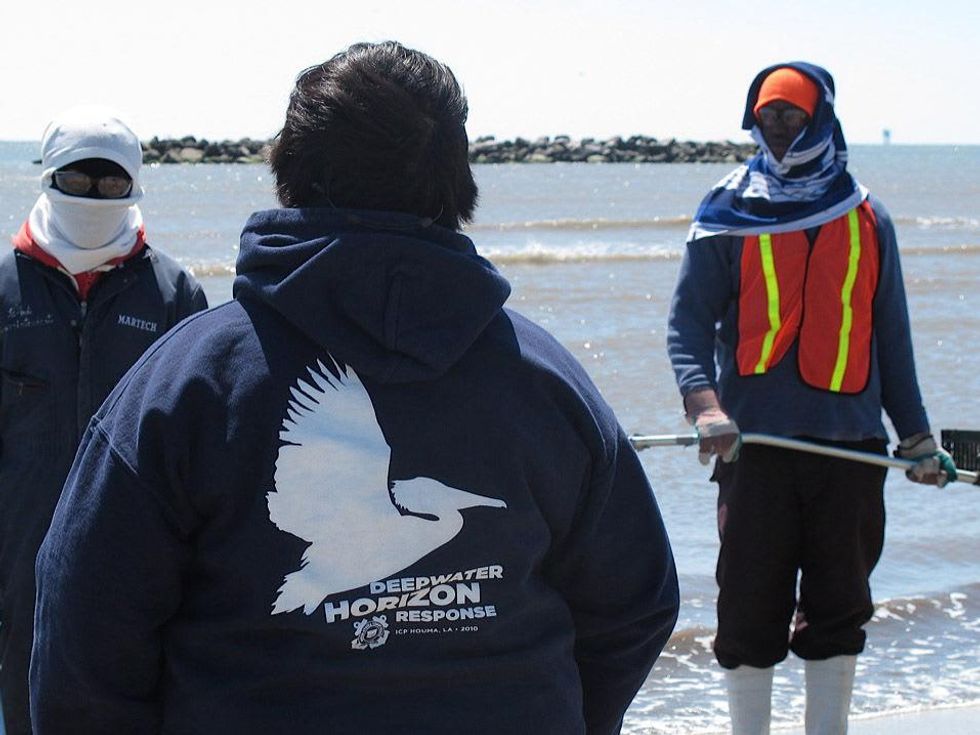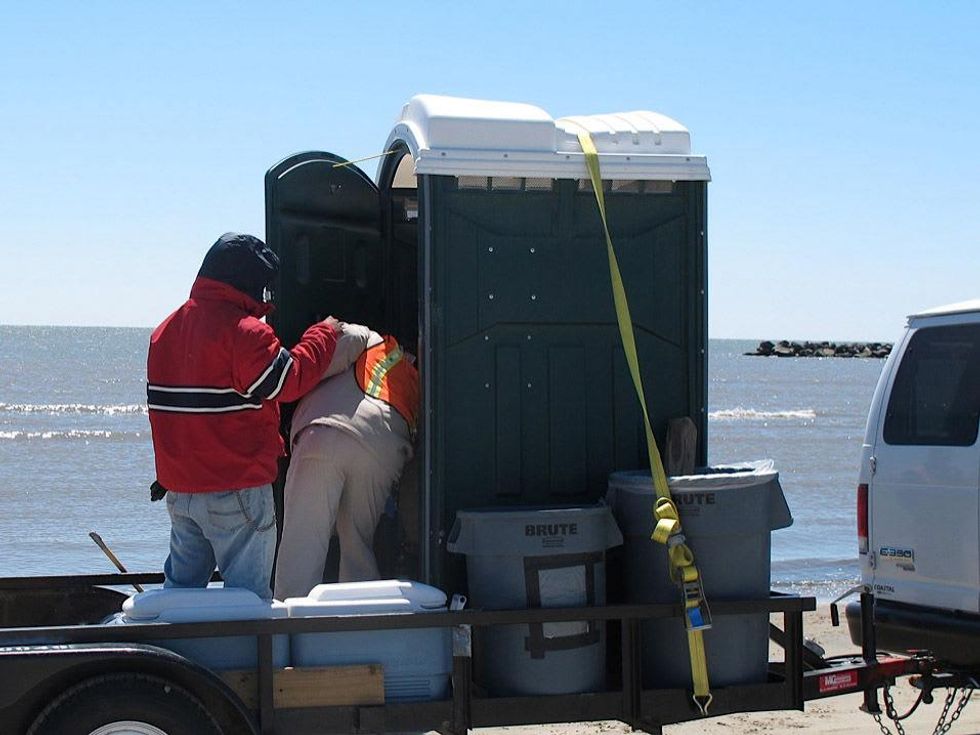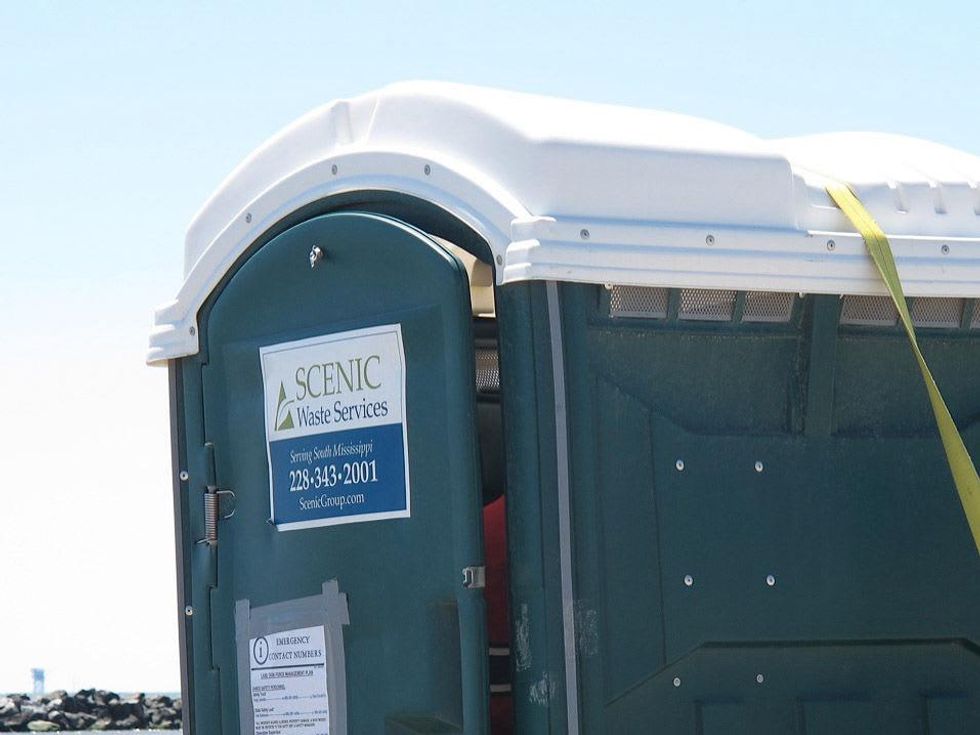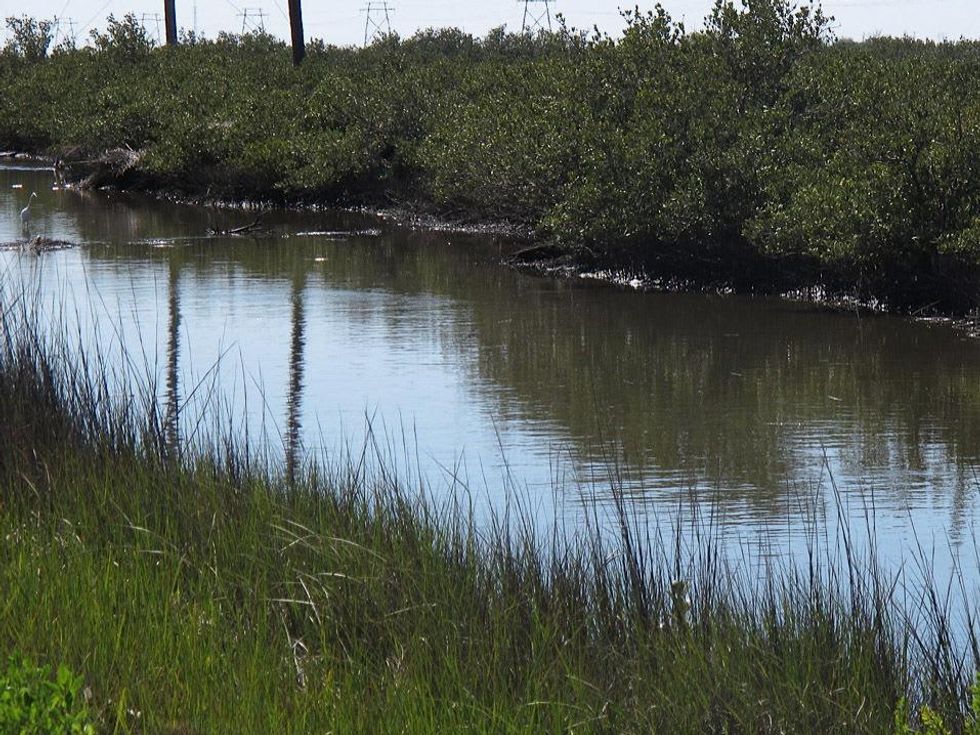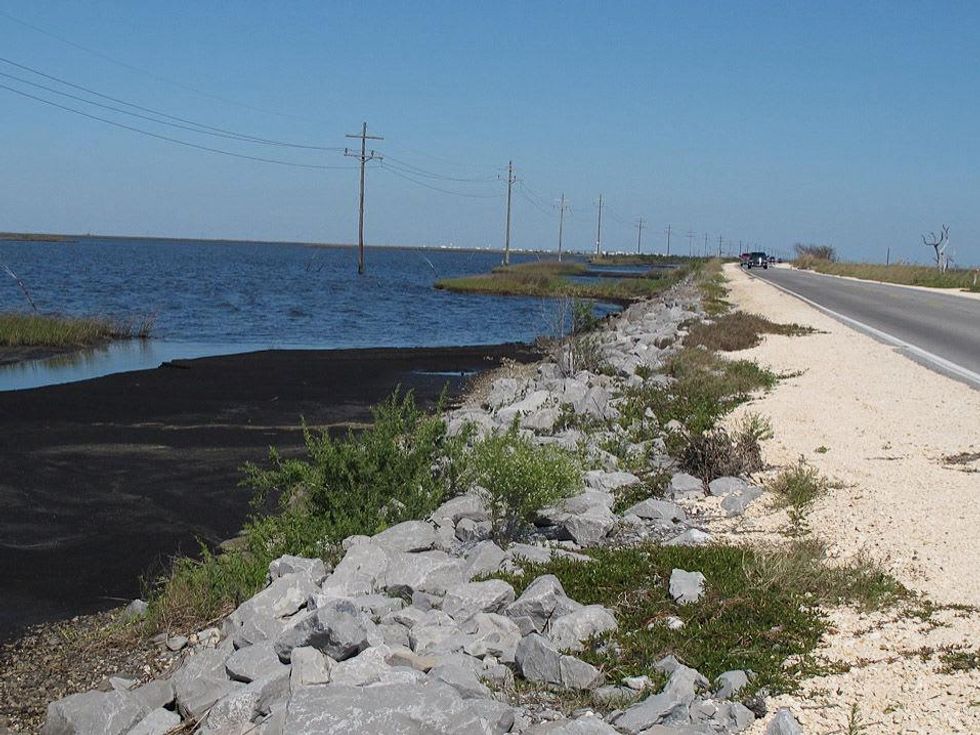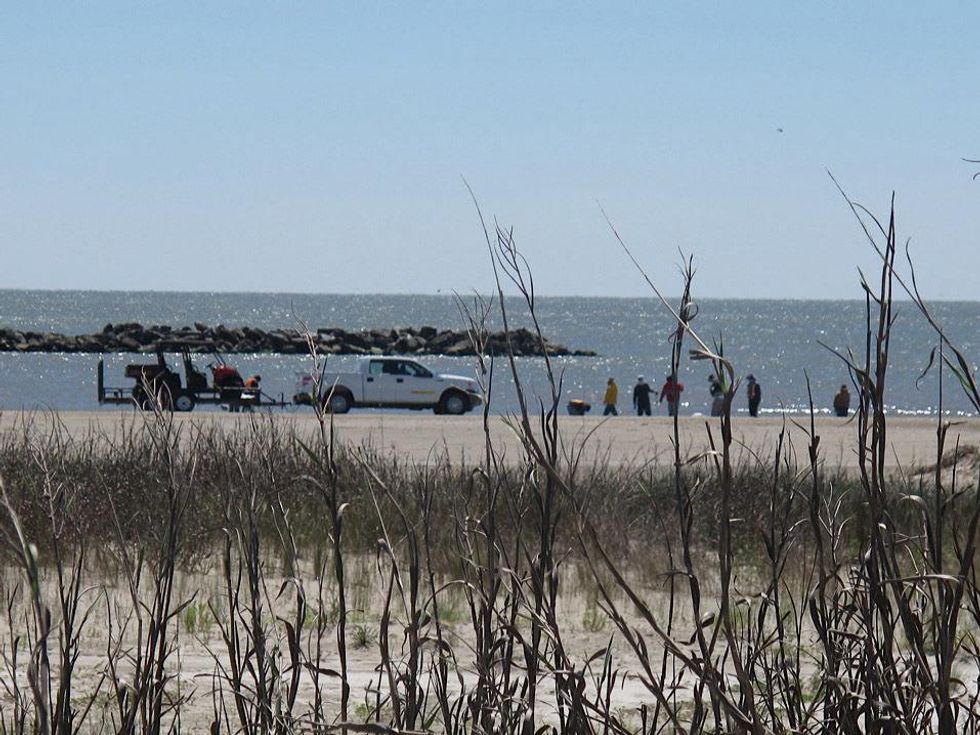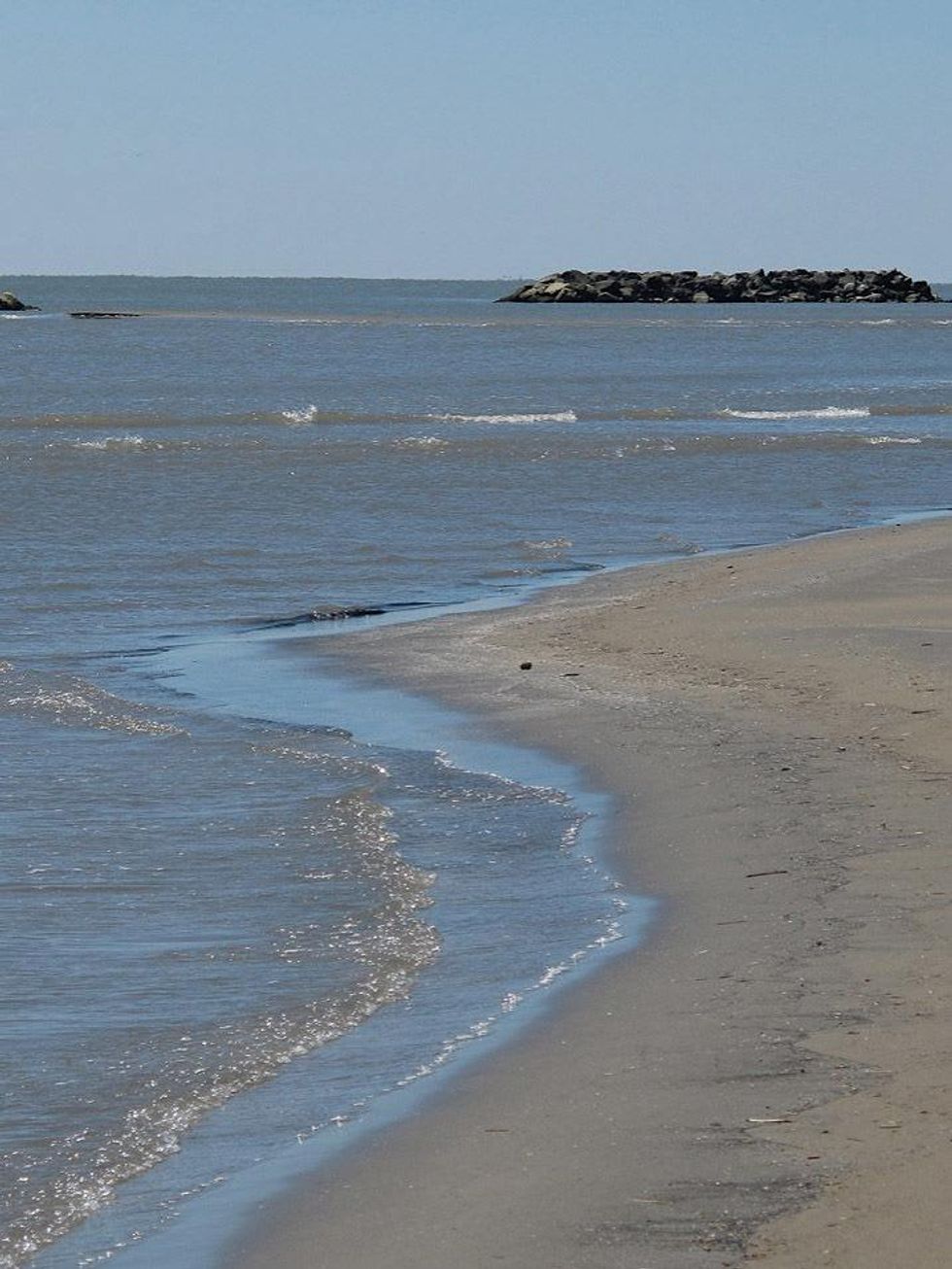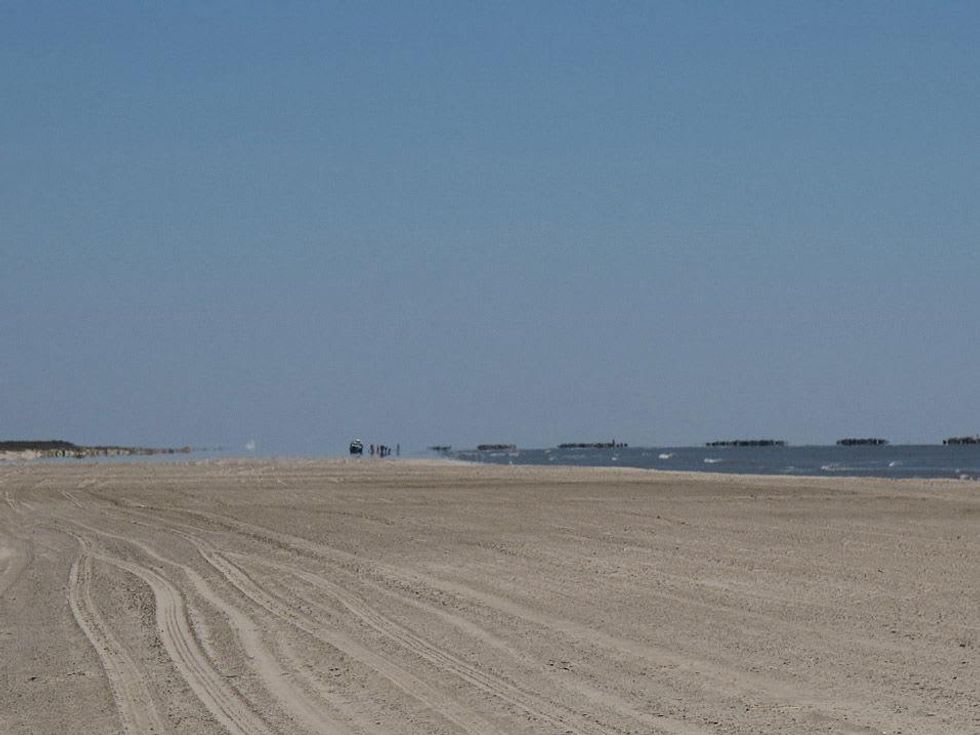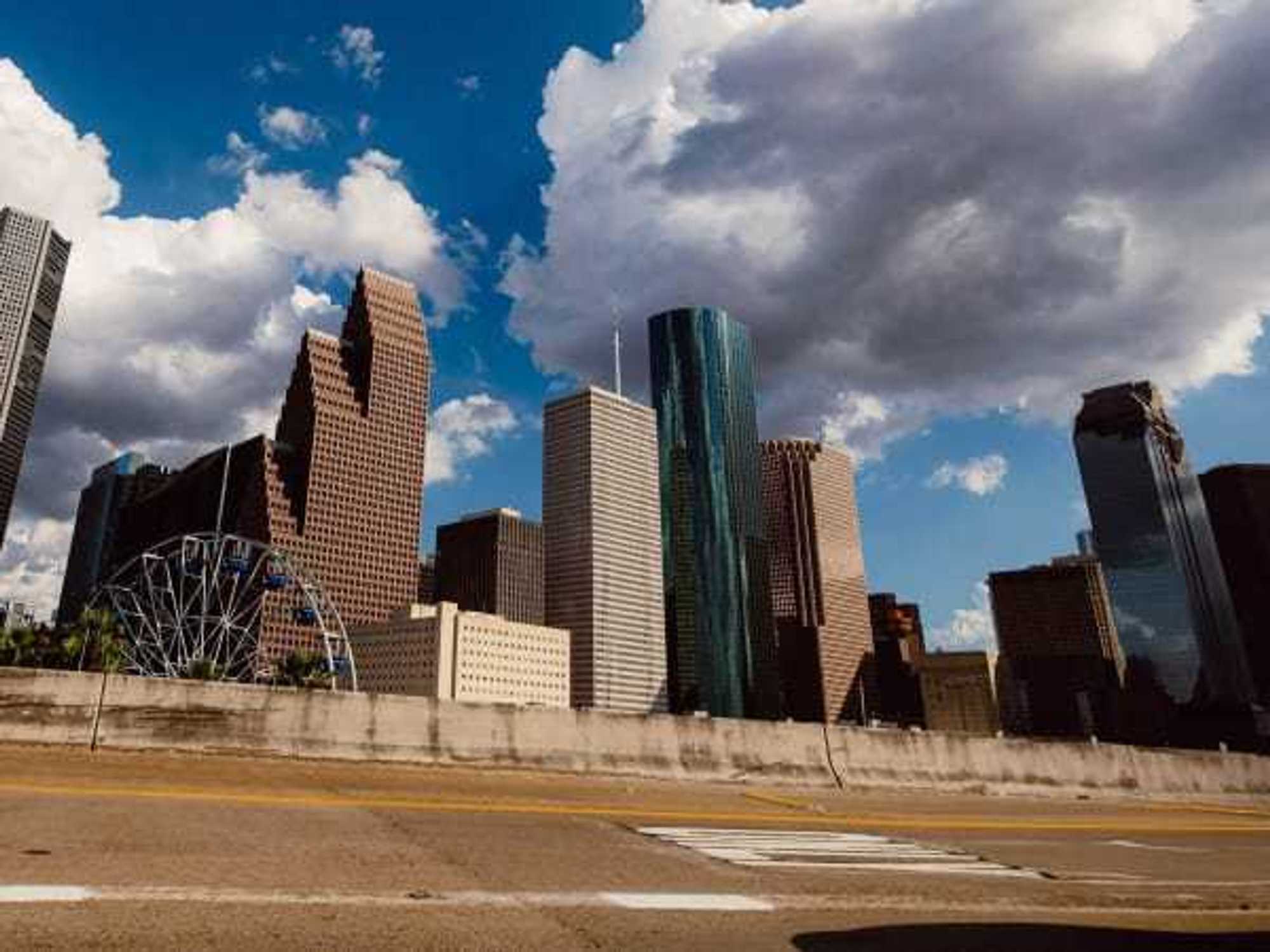Secret Oil Spill Cleanup
Secrecy still surrounds Deepwater Horizon oil spill cleanup: Please don't look at those tar balls!
Editor's Note: In 2010, Katie Oxford filed a series of riveting columns from the heart of the Gulf oil spill disaster. She recently returned to Louisiana. This is her sixth column in a series. It picks up from her Grand Isle journey.
GRAND ISLE, La. — After visiting with fisherman advocate Dean Blanchard in his office on Grand Isle, I headed for the beach.
Three years ago, I couldn’t see the beach much less get close to it. The shore was saturated with oil, swarming with officials and no telling how many traumatized, if not dead, wildlife.
Then, even at the Louisiana Wildlife and Fisheries office a short distance away, security was as tight as a drum. Animals had been brought there for treatment before being transported someplace else. I’d come there hoping to view them as I’d heard that someone from National Geographic had successfully gained access the day before.
The spokesman for Louisiana Wildlife and Fisheries listened patiently to my request, then looked down and shook his head. With a melodious voice and a smile, he delivered his message masterfully. No way in hell.
“We’re picking up tar balls,” she replied, as casually as she might have said seashells. “Just maintaining the beach.”
Now, on a blue-sky day, there wasn’t a soul in sight. Not a bird either. Except for the wind in my ears, there was no sound. Not even of water lapping. The beach, while vast, looked raked down to the nubs. In some places, as though God had put a hot iron to it. Nothing looked, smelled or felt like the beach. That is, natural, only the full view of the sky on a gorgeous spring day.
Out over the water and running parallel to the beach was a series of berms. They lay like a train of meatloaves. Overcooked. As I walked along the shoreline, I peered down the beach and saw that someone else was on the beach too. It moved like a giant caterpillar.
Wanting to know, I scurried to my car and hauled ass in its direction. About a mile down the road, I pulled over to see if I’d driven far enough and realized that I hadn’t. Another mile further, I parked my car, grabbed my camera and hurried to the beach.
The giant caterpillar was a group of workers. Following behind them were several vehicles, one of which appeared to be pulling a port-a-can.
As I approached, I asked one of the drivers who was in charge. He pointed to a woman who was wearing a navy blue sweater. On the back was a white Pelican with “Deepwater Horizon Response” underneath.
“What are you guys doing?” I asked her.
“We’re picking up tar balls,” she replied, as casually as she might have said seashells. “Just maintaining the beach.”
“Do you mind if I take some photographs?”
“You can take pictures of the beach but not of what we’re collecting.”
I wondered if she worked for BP.
“No,” she answered. “I’m with Danos. We’re subcontractors for BP.”
"You can take pictures of the beach but not of what we’re collecting.”
She was friendly but she had a job to do and clearly seemed prepared.
Later that day, leaving Grand Isle on LA 1, I pulled onto the shoulder (what there was of one) to check out a dark looking material on either side of the highway. I saw that in some places, the material was dry and held a dull yellow substance that ran through it like a snake. It was similar to what I’d seen from lifelong local Russell Dardar’s boat three years ago and I wondered if it was dispersant.
The next morning, I called Louisiana Wildlife and Fisheries to ask about the stuff. A nice woman who answered said, “It sounds like something organic. Like dead marsh.”
She offered to take a look at it on her way home. That if I wanted to give her my name and number, she’d call me later.
“I appreciate it,” I said, “but could I speak with someone in your office who might know?”
She put me on hold briefly and then returned. “My supervisor said that if you’d like to send me the photographs, she’d be happy to take a look at them.”
I took her email address but I didn’t send the photographs. After we hung up, I remembered something that Blanchard had said. I’d called him before the Louisiana Wildlife and Fisheries asking the same question. Dean wasn’t sure what the stuff was but he could certainly guess.
“That’s OK,” I said. “I’ll call some officials in Grand Isle.”
“You’re not gonna get anyone to tell you,” Dean said.
He was right.
